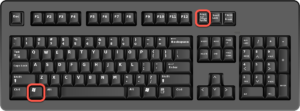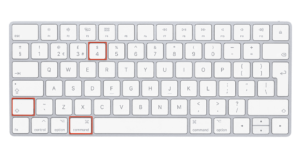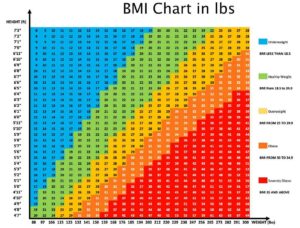What is Forex?
Foreign exchange, or forex, is a decentralized global market for trading currencies. The foreign exchange rate is determined by this market. It covers all facets of purchasing, selling, and exchanging currencies at established or current rates. It is the world’s largest market by far in terms of the trading volume.
The bigger international banks are the main players in this market. Apart from weekends, financial centers all over the world serve as the focal points for trading between a variety of different types of buyers and sellers. Since currencies are always traded in pairs, the foreign exchange market establishes a currency’s relative value rather than its absolute value by establishing the market price of one currency when purchased with another. Ex: X CAD, CHF, JPY, etc. are equal to 1 USD.
Through financial institutions, the foreign exchange market functions on various levels. Behind the scenes, banks work with a select group of financial institutions known as “dealers,” who conduct substantial foreign exchange trading. This unregulated market is sometimes referred to as the “interbank market” because banks typically act as foreign exchange dealers (although a few insurance companies and other kinds of financial firms are involved). Hundreds of millions of dollars can change hands in very sizable trades between foreign exchange dealers. Forex has few (if any) supervisory entities overseeing its operations because there is a sovereignty issue when dealing with two currencies.
By allowing currency conversion, the foreign exchange market facilitates international trade and investments. For instance, it enables a company in the US to import goods from EU members, particularly those in the Eurozone, and pay in EUR even though its revenue is in USD. Based on the difference in interest rates between two currencies, it also encourages direct speculation, evaluation of currency values, and carry trade speculation.
A party buys some amount of one currency by paying with some amount of another currency in a typical foreign exchange transaction.
Due to these factors, the foreign exchange market is distinct.
- Its enormous trading volume, which makes it the most liquid asset class globally,
- The geographic distribution of it.
- Its continuous operation, which includes trading from 22:00 GMT on Sunday (Sydney) until 22:00 GMT on Friday (except on weekends) (New York)
- The multiplicity of variables that influence exchange rates
- The use of leverage to increase profit and loss margins and account size
- The low relative profit margins compared to other fixed-income markets.
In the 1970s, the modern foreign exchange market started to take shape. Following World War II, the Bretton Woods system of monetary management, which established the guidelines for trade and financial relations among the major industrialized nations of the world, imposed restrictions on foreign exchange transactions for thirty years. Countries gradually shifted from the previous exchange rate system, which remained fixed by the Bretton Woods system, to floating exchange rates.
The most liquid financial market in the world is the foreign exchange market. Large banks, central banks, currency speculators, businesses, governments, and other financial institutions are examples of traders. The global foreign exchange market and its related markets have increased average daily turnover. The Bank for International Settlements 2019 Triennial Central Bank Survey shows that in April 2019, the average daily turnover was $6.6 trillion, up from $1.9 trillion in 2004.
How do you make money from Forex?
Taking a long or short position in a currency pair is the most typical way to profit on the foreign exchange market. By buying the base currency and selling the quote currency, you are said to be in a long position. When you have a short position, you sell the base currency and buy the quote currency. You profit from a long position when the value of the base currency rises relative to the quote currency. You profit from the short position when the base currency’s value declines about the quote currency.
1. Research the Foreign Exchange (Forex) Market: Before you begin trading, it’s critical to comprehend the fundamentals of the Forex market. Learn about the various currency pairs, trading methods, and types of analysis that are used to make trading decisions.
2. Select a Broker: After you have a solid grasp of the forex market, you must select a broker. Choose a broker that provides reasonable spreads, quick execution, and an easy-to-use trading platform.
3. Open a Trading Account: You must open a trading account after selecting a broker. You can use this to fund deposits, make trades, and manage your account.
4. Establish a Trading Strategy: Before beginning to trade, you must choose a trading strategy. This will assist you in deciding how much risk to take on each trade as well as when to enter and exit trades.
5. Start Placing Trades: After establishing a trading strategy, you can begin placing trades. Keep a close eye on your trades and modify your strategy as necessary.
6. Manage Your Risk: Trading requires careful risk management. To reduce your risk and safeguard your profits, be sure to set stop-losses and take profits.
7. Track Your Performance: Track your performance over time to make sure you are accomplishing your objectives. To maximize your profits, adjust your strategy as necessary.
Trading derivatives like options and futures is another way to profit on the foreign exchange market. Options give you the option to buy or sell a currency pair at a predetermined price on or before a specific date, but not the obligation to do so. Futures are agreements that require the buyer to buy a currency pair at a specified price on a future date.
Finally, offering services like currency conversion, hedging, and arbitrage can help you generate income in the foreign exchange market. The process of currency conversion involves paying a fee to convert one currency into another. By investing in a currency pair, you can protect yourself from price swings going the other way by hedging. Arbitrage is the practice of profiting from price differences between various markets.
In summary, the foreign exchange market is an international, decentralized marketplace for currency trading. With an average daily turnover of $6.6 trillion, it is the largest financial market on the planet. By taking a long or short position in a currency pair, trading derivatives like options and futures, or offering services like currency conversion, hedging, and arbitrage, you can generate income in the foreign exchange market.
FAQS
- How do I begin trading foreign exchange?
To start trading, you must open an account with a Forex broker like AGEA. After that, you can start buying and selling currencies using their Forex client program. You will only need to spend a few minutes on this.
2. Who is the owner of Forex, and where is it situated?
It does not have a specific owner. Since forex is an interbank market, all transactions take place only between the seller and the buyer. Forex will therefore continue to exist if the current banking system does. It has no affiliation with any one nation or governmental body.
3. What is the margin?
To secure an open position, you must have a margin in your broker account. Different brokers have different margin money requirements to maintain your open positions.
4. What time does the forex market open and close?
The forex market is open every day from Sunday at 22:00 GMT until Friday at 22:00 GMT (the start of the Australian trading session) (and the closing of the US trading session).
5. What starting capital do I need to trade forex?
You can start trading forex for as little as $1 with some Forex brokers. The standard minimum ranges between $100 and $10,000 ($100,000 and higher for interbank trading).




